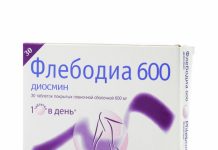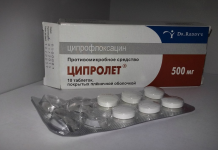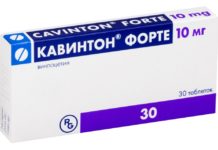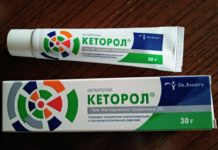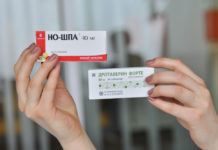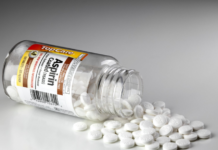Pediatricians often prescribe Nurofen Children's Syrup for small patients. It quickly reduces the temperature, relieves pain and other signs of inflammatory processes. It will be useful for parents to find out what the drug consists of, how to give it to children correctly, in order to avoid overdose and side effects.
Material Content:
- 1 Nurofen, children's syrup for temperature: release form, composition
- 2 Pharmacological action and indications for use
- 3 At what age can children be given
- 4 How long does Nurofen act
- 5 Children's syrup Nurofen: instructions for use
- 6 Pregnancy and lactation
- 7 Drug Interactions with Other Drugs
- 8 Contraindications, side effects and overdose
- 9 Terms and conditions of storage of syrup
- 10 Syrup analogs
Nurofen, children's syrup for temperature: release form, composition
The treatment of children, especially very young ones, requires a special approach. Especially for kids, pharmacists created a drug in the form of a sweet syrup. The white liquid is viscous and tasty, which allows parents to give medicine to a sick child without any problems.
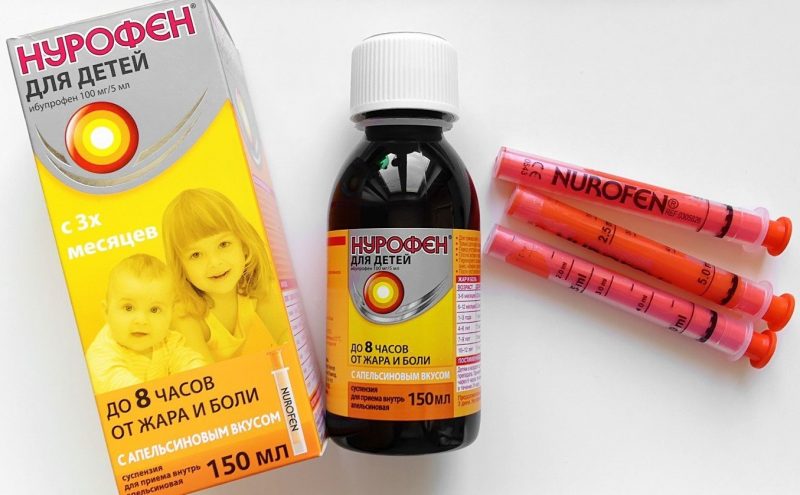
Syrup has the main active ingredient - ibuprofen, in 1 tbsp. l (5 ml) of the drug contains 100 mg of the active ingredient.
In addition, Nurofen includes:
- liquid maltitol (sweetener);
- glycerol;
- purified water;
- lemon acid;
- sodium chloride;
- sodium saccharin;
- sodium citrate;
- xanthan gum;
- flavoring (strawberry or orange).
In pharmacies, you can buy dark bottles of Nurofen (100, 150 and 200 ml) packed in boxes with an orange or strawberry flavor.The package also contains detailed instructions for the use of the drug and a convenient dispenser, with which it is easy to type syrup from a bottle.
Pharmacological action and indications for use
Ibuprofen has the ability to slow down the body's response to an infectious agent or inflammatory process.
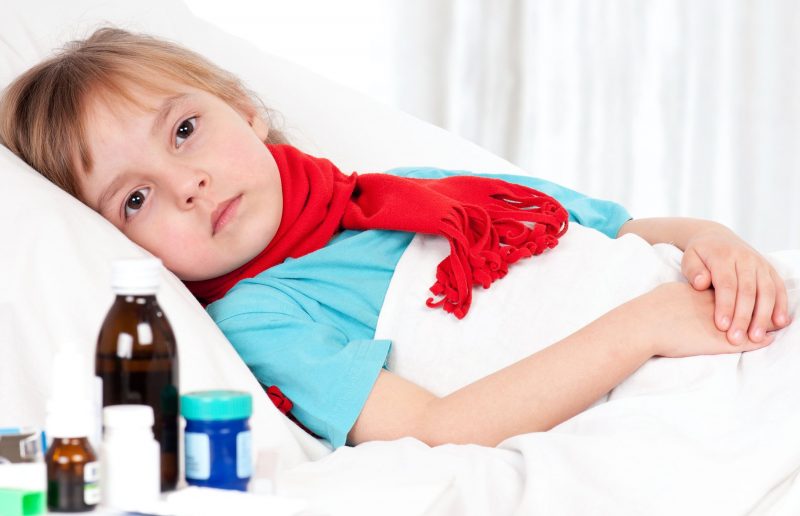
Nurofen is a non-steroidal anti-inflammatory drug that is used as an anesthetic and antipyretic in symptomatic therapy. The medicine is used to relieve pain, as well as in cases where it is necessary to quickly reduce the body temperature of the child.
Indications for taking the suspension are:
- diseases accompanied by high temperature (> 38.5), - influenza, acute respiratory infections, infectious pathologies;
- post-vaccination fever (fever in the child after the introduction of the vaccine);
- teething pain;
- headache, migraine attacks;
- muscle pain;
- pain after injuries of the musculoskeletal system, sprains;
- sore throat and ears;
- neuralgia of different localization.
Nurofen improves well-being, but does not cure the disease. The drug is used in complex therapy along with drugs that affect the cause of the pathology.
At what age can children be given
Pediatricians prescribe syrup to lower the temperature and eliminate pain in children from 3 months of age, having a body weight of more than 5 kg. In rare cases, when necessary, Nurofen can be used in the treatment of patients up to 3 months.
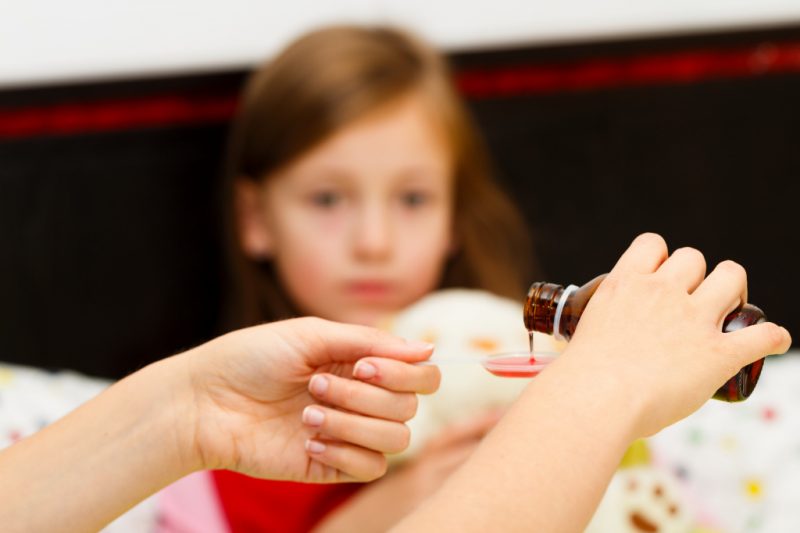
Adolescents over 12 years old can use syrup for symptomatic treatment as directed by a doctor, but drugs in a different form will be more effective for them.
How long does Nurofen act
The speed of the drug depends on when the child takes the syrup. If Nurofen is used on an empty stomach, then after 20 minutes the active substance from the digestive tract enters the bloodstream and begins to act. The maximum concentration of ibuprofen in plasma is observed 45 minutes after taking the syrup.
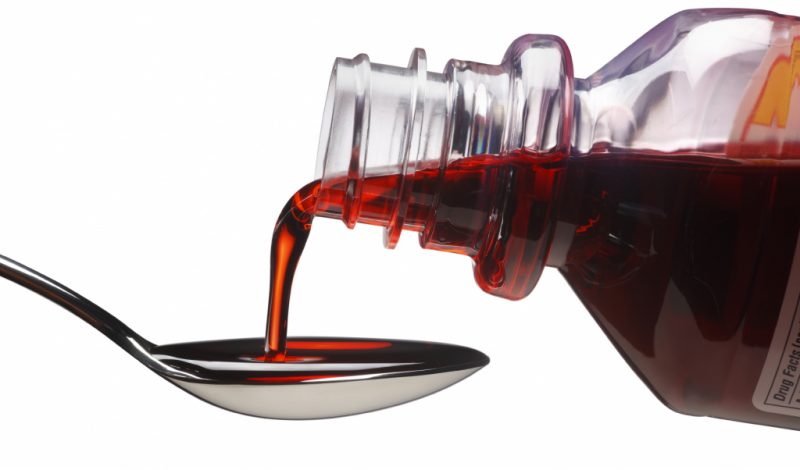
After what time does Nurofen act, if consumed with food or after eating? Then the action will begin a little later - in 35–40 minutes. The greatest amount of the drug will reach the blood after 1.5–2 hours after administration.
The duration of action depends on the severity and degree of the inflammatory process. On average, Nurofen provides a decrease in temperature for 5-8 hours.
Children's syrup Nurofen: instructions for use
The pediatrician prescribes a suspension for oral administration. The active substance of Nurofen is rapidly absorbed into the blood from the gastrointestinal tract.

For dosage accuracy, along with the syrup in the package is a measuring syringe, with which it is convenient to collect the drug from the bottle. The dispenser can be used several times, without forgetting to rinse and dry thoroughly after each use.
Dosage and administration
Dosage depends on the indications, the age of the child, his weight and physiological characteristics. The calculation is carried out from the ratio: 5-10 mg of ibuprofen per 1 kg of body weight at a time. The maximum per day can be given to children 20-30 mg of the drug per kilogram of weight.
| Age (weight) | Recommended Suspension Dosage | The maximum daily dose of ibuprofen, ml |
|---|---|---|
| 3-6 months (5-7.6 kg) | 2.5 ml (50 mg) 3 times a day | 150 |
| 6-12 months (7.7-9 kg) | 2.5 ml (50 mg) 3-4 times a day | 200 |
| 1-3 years (10-16 kg) | 5 ml (100 mg) 3 times a day | 300 |
| 4–6 years (17–20 kg) | 7.5 ml (150 mg) 3 times a day | 450 |
| 7–9 years old (21–30 kg) | 10 ml (200 mg) 3 times a day | 600 |
| 10-12 years (31-40 kg) | 15 ml (300 mg) 3 times a day | 900 |
Special instructions for taking syrup
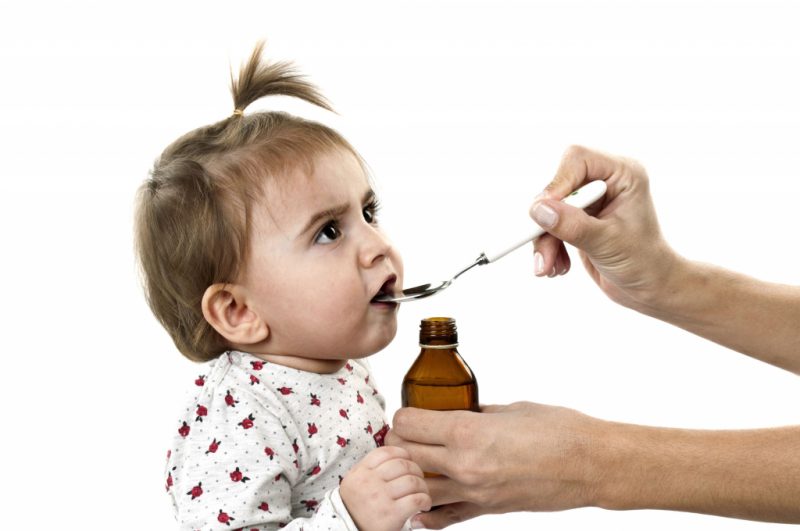
To avoid unpleasant side effects during treatment, you should follow the rules for taking syrup:
- Do not use syrup for more than 3 days to lower the temperature, more than 5 days - for pain relief. Long-term use provokes the appearance of allergic reactions, digestive disorders.
- Give the child a suspension after meals to reduce the irritant effect on the gastrointestinal mucosa.
- Shake the syrup bottle thoroughly before use.
- Do not dilute the drug with water.
- Drink the syrup with a sufficient amount of liquid (milk, water, tea, compote).
- The interval between doses of the suspension should be at least 6-8 hours.
- If side effects occur, stop taking the drug and consult a doctor.
If after 3 days (for babies 3-6 months - 24 hours) after treatment with Nurofen, the symptoms have not improved, or even the condition has worsened, you need to urgently call a pediatrician.
Pregnancy and lactation
During pregnancy, doctors do not recommend women to take Nurofen in the form of a baby syrup. For adult patients, there are other antipyretic drugs.

The use of any drugs during childbearing or breastfeeding should be agreed with your doctor. In the last trimester of pregnancy, Nurofen should not be taken.
Drug Interactions with Other Drugs
Not all medicines can be taken at the same time as antipyretic syrup for children. To avoid undesirable consequences, you should carefully study the instructions regarding the compatibility of drugs.
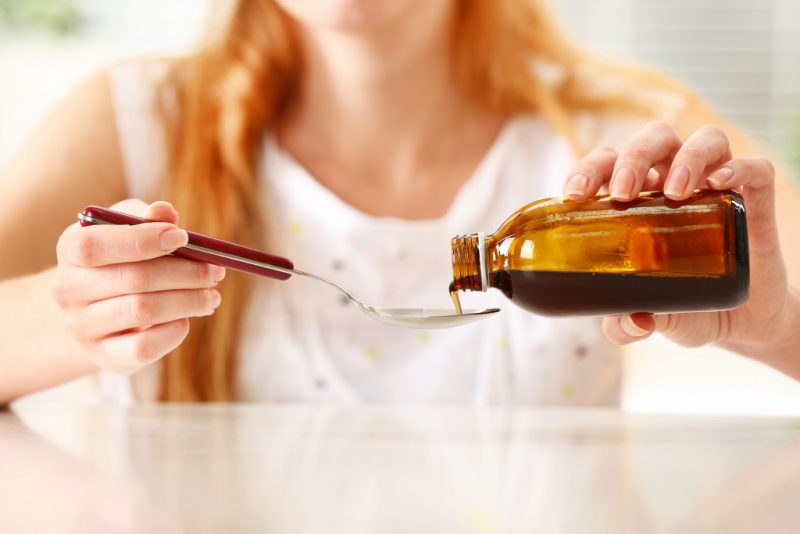
How does Nurofen work in combination with other medicines:
- The use of other non-steroidal anti-inflammatory drugs requires dose adjustment of the syrup. The pediatrician takes into account the total amount of active substance in order to avoid an overdose.
- Simultaneous administration with acetylsalicylic acid reduces the effectiveness of drugs, causes side effects.
- The use, together with ibuprofen, of blood thinning anticoagulants enhances their effect.
- Suspension reduces the effectiveness of diuretics and drugs for high blood pressure.
- Ibuprofen reduces the amount of cardiac glycosides used to stabilize heart rate.
- The simultaneous use of syrup with corticosteroids increases the risk of side effects.
- Taking ibuprofen with quinolone antibiotics causes a high probability of seizures.
- The combination of the drug with antiplatelet drugs and serotonin inhibitors causes the likelihood of bleeding in the digestive tract.
A large list of medicines that can not be taken in combination therapy with Nurofen requires special care when prescribing a course of treatment.
Contraindications, side effects and overdose

Contraindications to taking the suspension for children are:
- previously identified intolerance to the group of non-steroidal anti-inflammatory drugs;
- hypersensitivity to the components of the drug (ibuprofen and excipients, such as fructose);
- peptic ulcer of the stomach or duodenum;
- bronchial asthma;
- previously identified bleeding after applying NSAIDs;
- pathology of the kidneys or liver;
- elevated levels of potassium in the blood;
- high degree of dehydration (due to diarrhea, vomiting);
- blood diseases (hemophilia, leukopenia);
internal bleeding; - pregnancy in the 3rd trimester;
- severe heart failure;
- children's age up to 3 months (body weight up to 5 kg).
In addition, if you choose the wrong dosage for the child or continue treatment with Nurofen for a long period, undesirable side effects are possible.
Among them:
- manifestations of allergies (itching, rash, bronchospasm, edema);
- nausea, bouts of vomiting;
- abdominal pain;
- mucosal lesions (ulcers, bleeding);
- indigestion
- headache, dizziness;
- disruptions in blood formation (anemia, leukopenia);
- kidney pathology, cystitis;
- irritability, insomnia.
Poisoning with the drug is possible if the child drinks too much a dose of the suspension. Signs of this condition appear 4 hours after taking the medicine.
Symptoms of an overdose:
- vomiting
- epigastric pain;
- lethargy, drowsiness;
- noise in ears;
- pressure reduction;
- headache;
- heart rhythm disturbance;
- gastrointestinal bleeding;
- acute renal failure;
- cramps
- coma (in rare cases with severe poisoning).
In case of an overdose, it is necessary to rinse the stomach, give the child activated charcoal, alkaline drink will help. If necessary, the doctor will prescribe symptomatic therapy.
Terms and conditions of storage of syrup
Nurofen should be stored out of reach of children, protected from sunlight, at a temperature of 15 to 25 degrees.
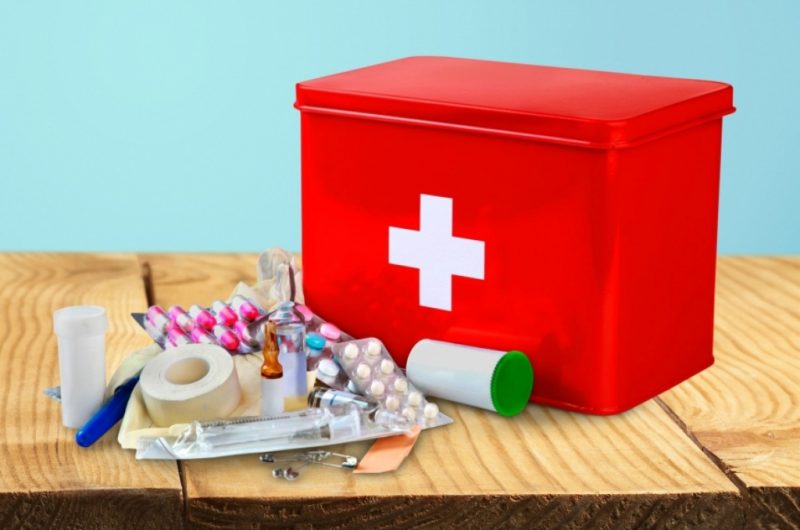
An unopened bottle is stored for 3 years from the date of manufacture, opened - 6 months from the date of opening.
Syrup analogs
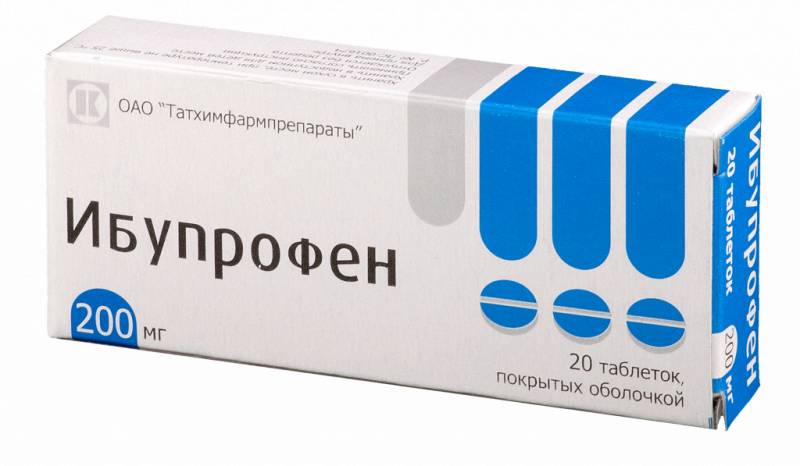
Among the synonyms of Nurofen, that is, drugs with the same active substance, the following medications can be distinguished:
- Brufen. The drug is available in the form of effervescent granules and suspensions. The second option is suitable for treating children.
- Bofen. The suspension is suitable for the treatment of children from 3 months.
- Orafen. Syrup for children from 6 months.
- Ibuprofen. Tablets are recommended for children from 6 years old.
- It’s long. A medicine in the form of a cream or gel for external use relieves pain. Recommended for children from 14 years.
- It has. Tablets are prescribed for children from 12 years old.
- Ibuprom. Available in tablets and capsules. Suitable for patients from 12 years old.
Ibuprofen, which is part of these medications, quickly relieves pain, reduces fever and improves the general condition of the child.


